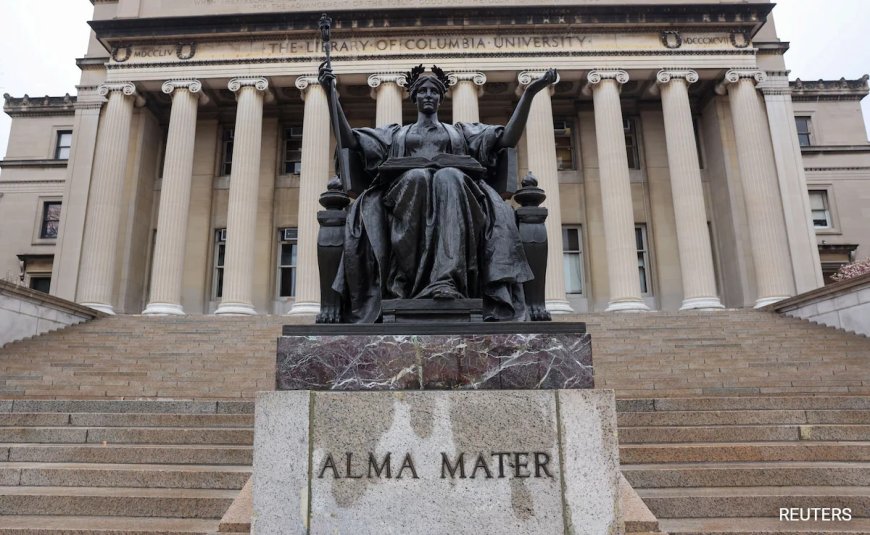How Trump's Immigration Crackdown Threatens To Hit Columbia's Finances
About 40 per cent of Columbia Universitys student pool consists of international students. Students pay $70,000 plus in tuition, but international students bring to the university what Trump froze in its federal research funds, - $903.1 million.

How Trump's Immigration Crackdown Threatens To Hit Columbia's Finances
Breaking News, Daily Updates & Exclusive Stories - dharmyuddh
Written by Priya Verma, Anjali Sharma, and Neha Gupta, Team dharmyuddh
Introduction
The recent immigration policies initiated by former President Donald Trump are causing significant ripples in the financial landscape of Columbia University. With around 40 percent of the student population being international students, the repercussions of these policies extend beyond borders, affecting tuition revenue and federal funding. In this article, we will delve into how these measures pose a threat to the university's finances and what it means for the future of higher education.
International Students: A Financial Backbone
Columbia University has long been a prominent destination for students worldwide. Approximately 40% of its student body comprises international students who contribute significantly to the university's finances. The average tuition fees for these students soar beyond $70,000 annually, directly contributing to the institution's revenue. This influx of funds enables the university to maintain infrastructure, faculty salaries, and research initiatives.
The Impact of Trump's Policies
Under Trump's administration, the enforcement of stricter immigration regulations has created an atmosphere of uncertainty for many prospective international students. An alarming aspect of this crackdown is its direct correlation to federal research funding, which has been previously frozen at an astounding $903.1 million. This halt in funds could hinder research development, reduce the availability of scholarships, and ultimately jeopardize the institution's esteemed status in academic circles.
Long-term Consequences
If these immigration policies continue to deter international students from pursuing their education at Columbia, the financial implications could be far-reaching. With the university relying heavily on tuition fees from these students, a sudden drop could lead to budget cuts, layoffs, and diminished educational resources. A decline in international student enrollment could result in a loss of cultural diversity and academic excellence that Columbia is known for.
Future Outlook and Solutions
The university administration must proactively address these financial threats by fostering a welcoming environment for international students. Cultural outreach programs, scholarships, and streamlined visa processes should be prioritized to alleviate fears surrounding immigration policies. Furthermore, leveraging partnerships with international universities can ensure a continuous flow of diverse talent into Columbia's educational ecosystem.
Conclusion
In conclusion, the ramifications of Trump's immigration crackdown extend beyond political borders, directly impacting Columbia University's financial health and its ability to offer quality education. Ensuring a robust strategy to support international students and counteract the financial strains posed by these policies will be crucial for maintaining Columbia’s reputation and academic integrity.
For more updates, visit dharmyuddh.com







